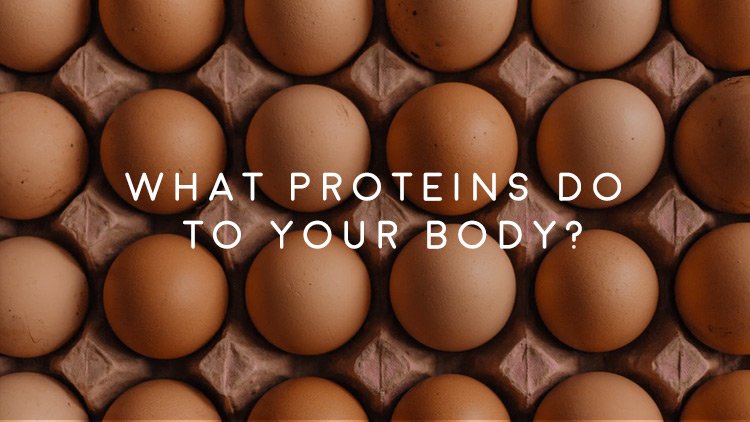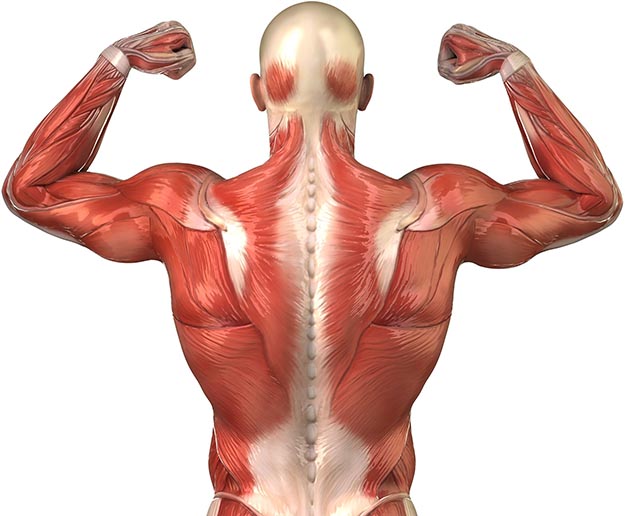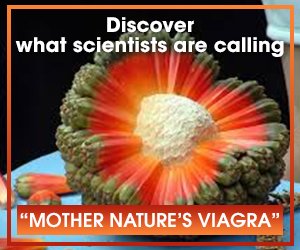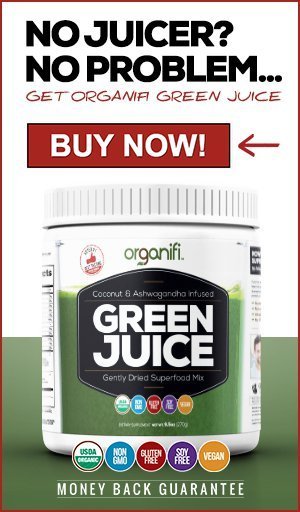
What Protein Does For The Body? The definition, the role and best sources
Are you wondering what protein does for the body? In this article, we will discuss the definition, the role of protein in the human body, and the best sources. Read on and find out what protein does for the body and how important it is.
Protein: The Major Health Building Block
Proteins are essentially large biomolecules or macromolecules. They consist of one or more long chains of amino acid residues. Further, they are important as structural components of the body tissues, enzymes, and antibodies. It is a macronutrient that builds and maintains the muscle and body tissue. In short, protein is an essential part of every cell in the body.
Proteins comprise 22 ‘building blocks’ called amino acids. However, the body cannot produce 9 out of the 22 amino acids. Hence, it has to reach out to the body in the form of a regulated diet, through food intake. The DRI (Dietary Reference Intake) suggests that 0.75 grams of protein per kg of the body weight are a common reference intake range. This amounts to about 56 grams of protein intake per day for the average sedentary man. In short, proteins are vital to life as it holds the body system together.
Role of Protein in the Human Body – What Protein Does for the Body?
It is the time to answer what protein does for the body. All the organs, tissues, muscles and hormones in the body are made up of proteins. The protein one consumes from food helps the body to grow and function properly. Further, proteins ensure proper cellular and muscular growth in the body. Besides this, the main health benefits of protein are as follows.
Stronger immunity
The body with the help of antibodies and through self-defense protects itself from various infections and diseases. The antibodies are inherently specific proteins which detect antigens or foreign elements in the body. So the body deactivates the antigens through the production of specific antibodies.
Fluid equilibrium
Through the process of osmosis, protein regulates the balance of fluid present in the body. As more water gets drawn towards the protein, a greater quantity of protein in maintenance happens within a cell. On the other hand, a fluid imbalance in the body causes Edema.
Potent source of energy
The body uses its own source of functional proteins to compensate for the missing energy in the body. Since the body does not store extra proteins, muscle proteins break down. Hence they provide amino acids to provide energy or synthesize glucose to provide energy.
Hair and Skin care
The main composition of our hair is Keratin also known as bundles of helical strands. Low protein intake leads to split ends, brittle hair and hair loss. On the other hand, the main composition of our skin is collagen which is a fibrous protein. Collagen holds together and strengthens our skin tissue. Therefore, protein plays a key role in improving our skin and hair care.
Aids weight loss
A protein-rich diet helps in weight management. Protein prevents loss of lean mass and increases the number of calories burnt by the body to digest it thereby aiding weight loss.
As you can now realize, what protein does for the body is very important.
The Intrinsic Relationship between Proteins and Testosterone
Experts are of the opinion that what and how much one eats bears an impact on the sex life. Protein is surely a key substance needed to produce testosterone. So vegetarians consuming a low protein diet often have relatively low testosterone in men. This results in a range of problems such as:
- brain fog, fat gain, and depression
- loss of muscle and strength
- erectile dysfunction
- low sex drive
- poor sperm count
Low protein diets increase globulin. This sticks to testosterone and makes it unavailable for use by the body. The daily dietary protein need is usually more in men. Besides building muscle mass, protein also boosts the testosterone level. For increased levels of testosterone, men should engage in resistance training along with a high-protein diet. This is especially true for men having one or more low testosterone symptoms.
Role of Protein in Muscle and Tissue Creation
Protein plays a vital role in regulating bone health as calcium and vitamin D does. For optimum muscle growth, a regulated intake of protein is necessary for the body. The composition of the protein includes- carbon, hydrogen, oxygen, and nitrogen. A negative nitrogen balance degrades the body to a catabolic state. Through internal fuelling, the body breaks down the muscles. Protein rebuilds damaged muscle tissues through protein synthesis. It further breaks down into amino acids which are a building block for all the muscles in the body. Sufficient amount of amino acid in the body supports the sustenance of bone and muscle tissue. The human body cannot store protein. Hence through food intake, the body has to refuel the protein balance.

Protected Digestibility Corrected Amino Acid Score (PDCAAS) states that 1.0 is the perfect protein score for building muscles, found in foods like egg whites, Whey protein, and soy. As the main building block in the body, protein maintains and develops body tissues. Basically, hair, skin, eyes, and muscles are all built from proteins. Lack of sufficient protein in the diet leads to muscle wasting. Hardcore exercises cause micro-tears to the muscles. Protein helps the body to repair the micro tears, and it is vital for the immune response. The intake of complete proteins like fish, meat, egg, and milk helps the body generates cellular growth of tissues and muscles.
Role of Protein in Wound Healing
The nutritional status plays a pivotal role in wound healing. Besides calcium, vitamin C, and balanced glucose, protein too plays an important role in wound healing. Protein helps the body to repair body tissues. Lack of protein intake leads to a weak formation of collagen. Hence lack of collagen formation leads to greater fluid leakage from the affected area. So the body tends to lose up to 100gms of protein due to exudation. Higher protein intake is a vital requirement for oxygen formation to heal wounds. Protein is a building-block in our body. Consuming calories is vital for aiding the body to use protein for healing rather than getting converted to energy. It is important to consume proteins to drive out the body from a catabolic state while healing.
Four Best Sources of Protein for the Body
Now that you know what protein does for the body, it is time to learn where to get it. Protein controls multiple functions in the body system from cell building to form antibodies. Men can obtain vital proteins from both animal and plant-based foods. Consume protein-rich foods like-
- Dairy products– Dairy products contain whey and casein protein which falls under the branch of glutamine. This is the most abundant amino acid. The casein protein in milk improves protein metabolism and regenerates protein cells overnight. Presence of Branch chain amino acids (BCAAs) in Whey protein, on the other hand, starts the cellular process of muscle building. Cottage cheese, cheddar cheese, milk, and yogurt are the best sources of whole protein from dairy sources. Low fat or skim dairy options works well for bone health.
- Eggs– They are the cheapest form of protein. Eggs are low carb and packed with branched amino acids and glutamic acid which makes it the ultimate source of protein.
- Legumes– Lentils, green peas, soybeans and kidney beans are rich in protein. They are also rich in phosphorus, iron, potassium and Vitamin B. Combine them with rice to form a complete protein intake. What’s more, this will, in turn, provide the body with essential amino acids.
- Meat– Pork tenderloin and lean beef are great sources of protein. Lean beef has two grams more saturated fat as compared to skinless chicken. Chicken breast is another great source of protein.

Peak it with Protein
Sound health both physically and mentally is a necessity for a fulfilling life. In short, what protein does for the body? Protein is a power nutrient source in the body. Therefore, consume almonds, chia seeds, peanut butter and oats to Build in your muscles and bones hard with proteins. The right inclusion of protein in the diet will bear a dual impact on the body. It will first increase bone mass and density which in turn will strengthen the muscles. Build in your muscles and bones hard with proteins.
Creator of the Juicing For Your Manhood programs and the #1 men’s health blog Olivier Health tips main editor. He has developed a new passion for juicing and has done a lot of experiments with foods possessing healing properties. His mission is to teach men to reinvigorate their lives using the power of juicing.
If you like this post, I invite you to click on the red bell icon located in the lower right corner to receive notifications when I publish new articles.
If you have questions for me, you can subscribe to my newsletter and send me an email by replying to the newsletter that you will receive.














